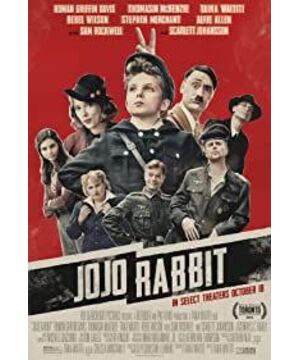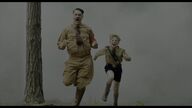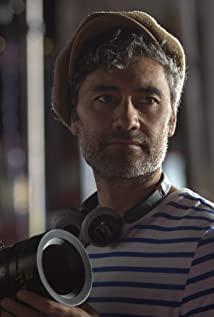Regarding the issue of artistic freedom, Adorno seems to have already explained to us that the self-discipline of modern art is a myth that cannot withstand scrutiny, and it is finally recognized as part of the ideology of capitalist society. "Art is the source of liberation and salvation" - I think this is probably the biggest misunderstanding of this film. Undoubtedly, art (love is a certain form) plays a pivotal role in the plot structure of this film, so how should we jump out of the myth of artistic self-discipline to re-understand the possibility of liberation in this film?
Art autonomy conceals and reverses a fundamental problem, that is, art does not have an independent sacred realm apart from ideology, but rather, ideology is rooted in a part of broad art (including desire). Art is a field that creates ideology, but people can use the inherent fluidity of art to transform in the overlapping world. This is also the spirit of Zhuang Zhou's philosophy. If there is any kind of liberation in the film, it never begins with the end of the film—the standardized removal of remnants of Nazis by Soviet soldiers (haha, GIs can go shopping with clean hands right?); it begins with the hero and heroine in the The "Jews-Nazis" group re-encountered themselves in the world of their own opposites. They finally re-identified themselves from the fantasy that came from their own opposites. The driving force behind this fantasy cannot be attributed to the mysterious power of love. Rather, love is only the inevitable result of this crossing.
The progressiveness of liberalism compared to Nazism is not the core of the film. The mother who lives in the middle class and Jojo, who believes in Nazism, do not constitute an inherently related opposition. The two are more like a juxtaposition of externality. (and thus a kind of indifference), so in the film the strength of the former alone cannot defeat the latter from within, but only through violence. They simply shape themselves through art in different ways: if art fuses in the right-wing radical action of the Nazis and becomes embodied in the calling relation of Hitler-Jojo (capital subject-lowercase subject); then in the world of capitalism, Art is enshrined on the roof of self-discipline, which in turn establishes the basic posture of liberal politics.
The Nazis had fantasies of their own, and like the Autonomy of Art, they were all absolutely insane epics that kept supplying themselves with meaning by filling in the absence of desire. Jojo who believes in Nazism and Jojo who falls in love are still just one Jojo in a sense. Since ancient Greece, the core of epics has been absurd and absurd, and in this film, the combination of the theme of political and human nature and the art form of comedy is by no means accidental, because the artistic Emancipation and absurdity exist in this unique realm of truth and non-neutrality. This film may have touched this field unintentionally and set it up at the center of crossing and turning, so the opening and ending of the plot can only be seen as the ebb of the artistic spirit. The film is about love and art, but in my opinion it inevitably ends up burying love and art. Because stories always seek an ending, and history is only in motion.
View more about Jojo Rabbit reviews











